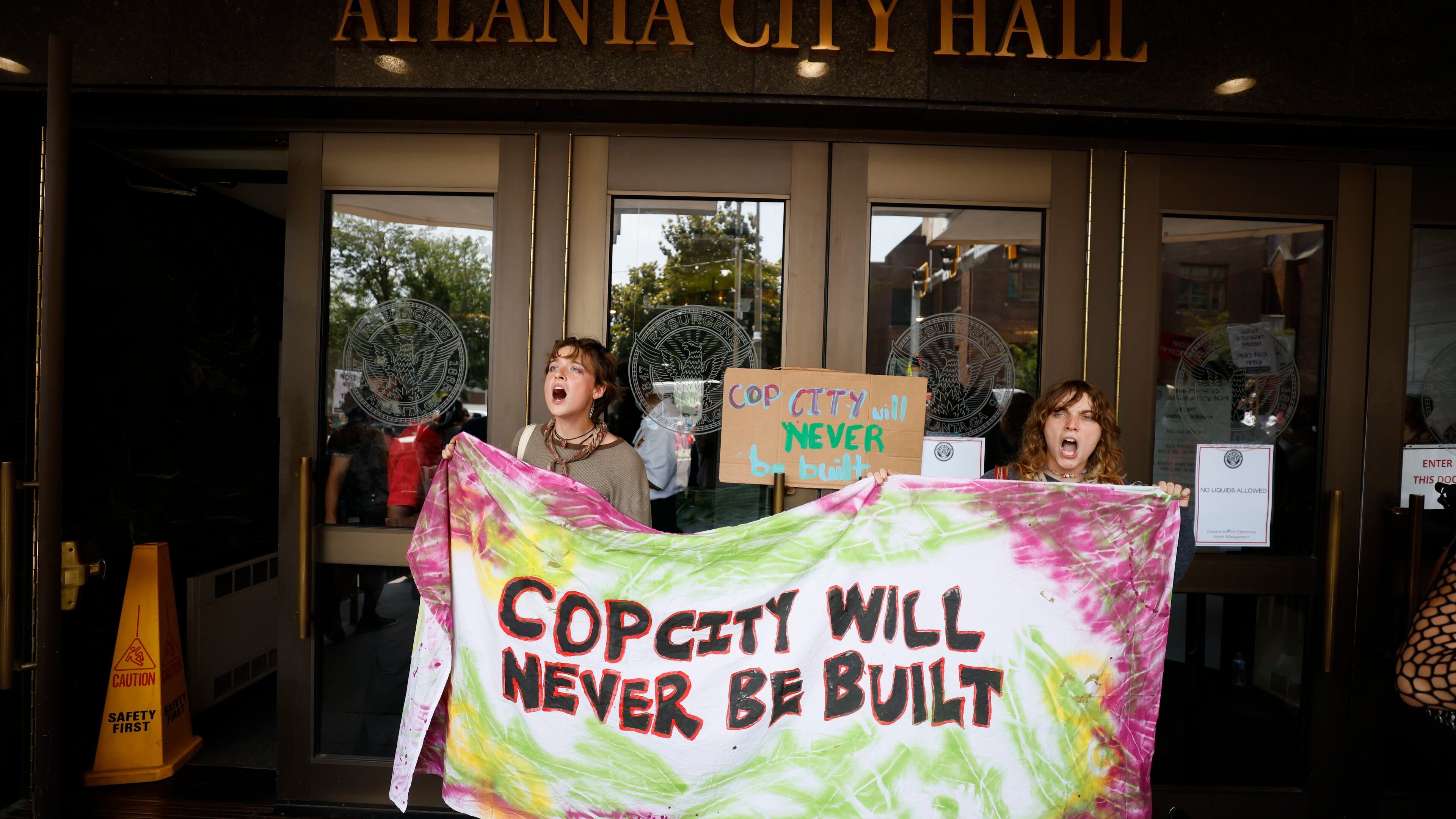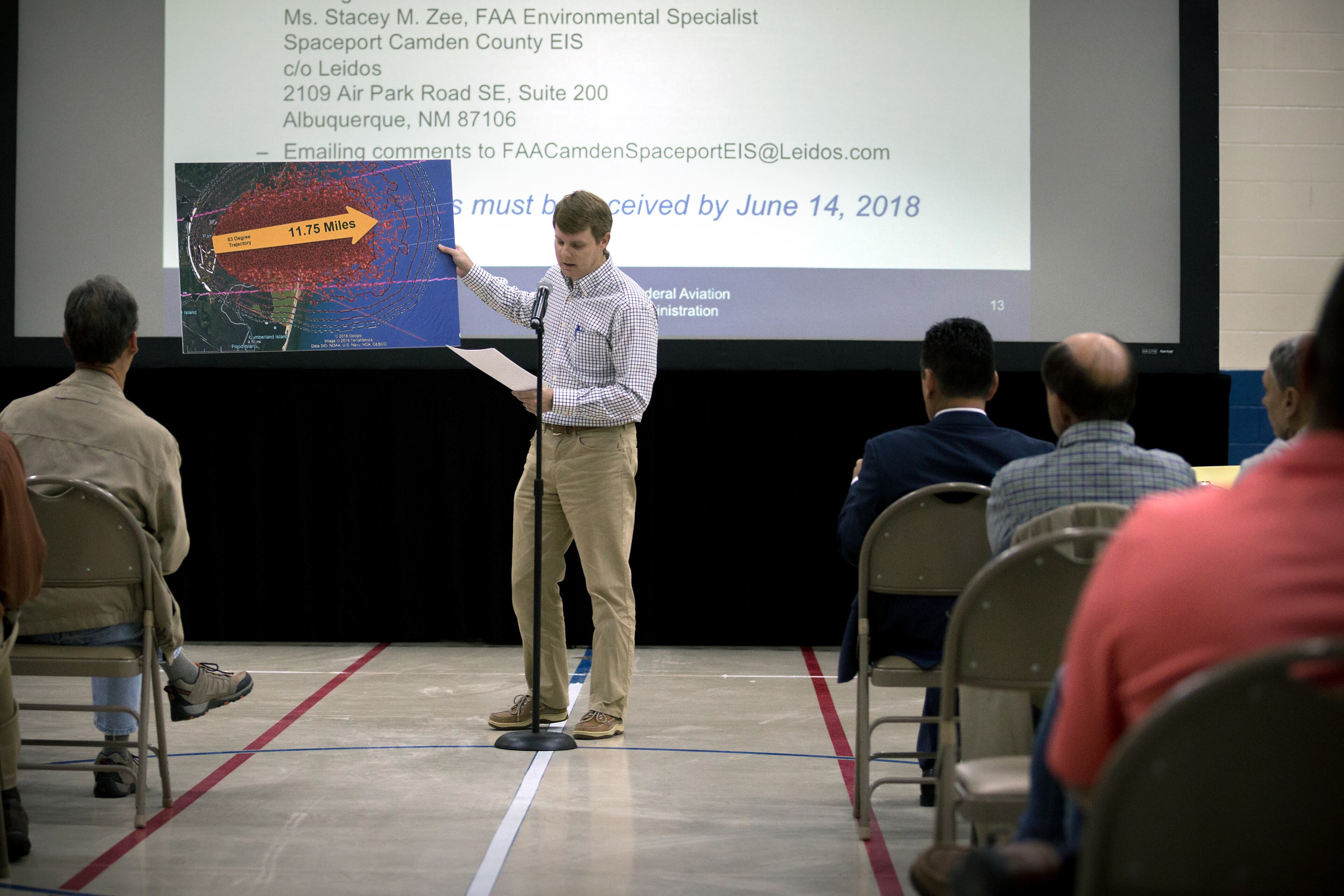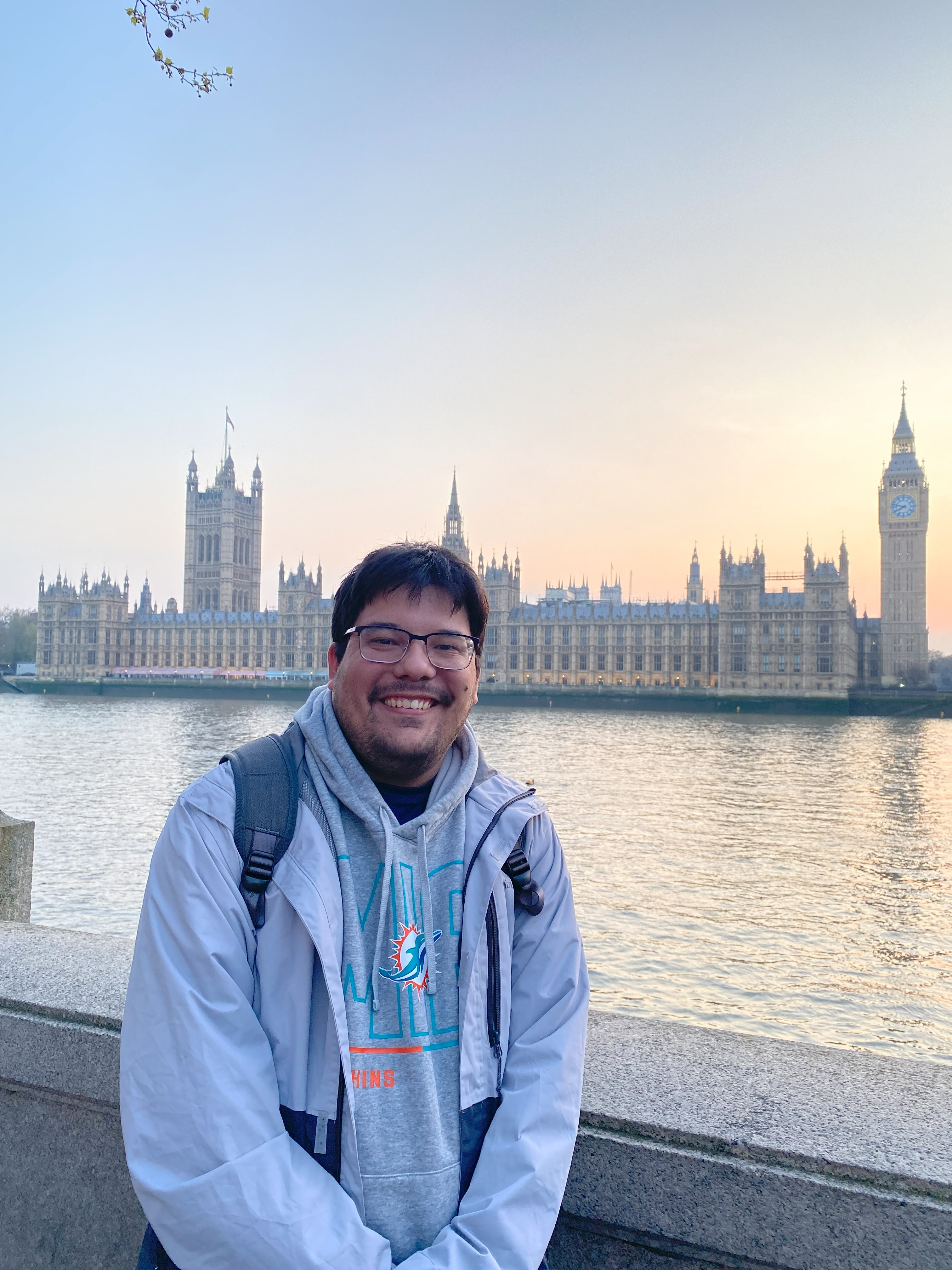What’s next for Atlanta’s public safety training center referendum?

The fate of Atlanta’s public safety training center referendum may hinge on train tracks in South Georgia and a coastal rocket launch facility.
As petitioners race to collect more than 70,000 signatures by Aug. 19 to force the referendum, the city and training center opponents have been arguing back and forth in legal filings over whether the referendum is valid at all.
That’s because Georgia’s citizen referendum system leaves room for dueling interpretations at the local level — reviving two legal precedents with opposite outcomes hundreds of miles from Atlanta.
In one case from the 1990s, residents in the city of Claxton weren’t allowed to hold a referendum to repeal a railroad crossing closure. In the other case, over a coastal “spaceport” in Camden County, the referendum was upheld earlier this year.
Lawyers for the city of Atlanta have called the referendum effort here “invalid,” and argue that the ground lease agreement OK’d by City Council in 2021 can’t be overturned.
They can point to a statutory municipal home rule passed by the state legislature in 1965 — the same law that Claxton city officials cited to halt the referendum over their railway crossing.
While organizers here are scrambling to collect 70,000 signatures — which is 15% of registered Atlanta voters — the city is speeding ahead with construction on the project in the South River Forest area of unincorporated DeKalb County. It is expected to be done by the end of 2024.
But there’s still hope for training center opponents after Camden County voters successfully halted their spaceport project from being built under a provision in the state constitution. Their legal argument, upheld by the Georgia Supreme Court in February, relied on the county home rule provision under the state constitution.
Atlanta’s contested referendum is “a fascinating and potentially important precedent no matter how it goes,” said Fred Smith, a law professor at Emory University and former clerk at the U.S. Supreme Court.
“If voters overturn this ordinance and for reasons related to a contract it’s still able to go forward, it would still transform people’s ability to influence policy at the local level,” he added.

Camden or Claxton
In 1998, residents of the South Georgia city of Claxton sued when city leaders passed a resolution to close certain railroad crossings they deemed dangerous.
The Georgia Supreme Court ruled against business owners and residents petitioning for a referendum on the matter, ultimately deciding that the process couldn’t change city resolutions, ordinances or legislation. The decision hinged on an interpretation of the municipal home rule enacted by the state legislature in 1965, and seems to cut against the Atlanta petition drive.
That particular ruling came into question more than two decades later, when residents of Camden County petitioned to reverse a decision by their board of commissioners to enter into an agreement with Union Carbide Corporation to build a commercial rocket launch facility.
“This language (in the constitution) has sort of been sitting there untapped until the Camden County case which transformed our understanding of the potential of this language,” Smith said.
The Georgia Supreme Court ruled that Camden County’s voters could petition for a referendum to change the board of commissioner’s decision based on the county home rule in the constitution. Camden residents successfully shut down the project through a referendum with 72% voting to halt the project.
The question now: Can a city-wide petition drive do the same?
The Georgia Supreme Court said it recognized the contradiction in the Camden and Claxton cases, but ultimately sided with Camden residents saying the constitution should be interpreted differently than statutory law. But it also didn’t overturn the Claxton precedent, creating a legal gray area.
“Because, here, we are construing a completely separate legal provision, the holding in (the Claxton case) does not control our decision in this case,” the ruling said. “And we need not consider at this time whether (the Claxton case) should be overruled in light of today’s ruling.”
Megan Desrosiers doesn’t live in Camden County, but led the petition drive there.
At first, Desrosiers said, Camden commissioners didn’t pay them much attention and were dismissive about it. That quickly changed.
“I wasn’t surprised because they had it in their head that the people who were opposed to the spaceport were just a small minority of people,” she said. “I don’t think they ever considered that such a majority of people were opposed to the spaceport.
“Even after the referendum, they still said that the majority of the people in Camden were in favor of the spaceport, they just didn’t show up to vote.”
Similar to the dispute in Camden, Atlanta government officials have called the training center referendum “futile” and are arguing that residents cannot repeal a city ordinance because of the Claxton ruling.
“(The case) prohibits the City from putting the referendum on the ballot, regardless of how many signatures are on the petition or who collects them,” the city’s lawyers wrote in the appeal of a federal court judge’s recent decision allowing DeKalb residents to collect petition signatures.
The group leading the Atlanta referendum petition have already gathered more than 50,000 signatures of Atlanta registered voters ahead of their Aug. 19 deadline.

City Council under pressure, again
Much to the dismay of Atlanta City Council members, who have been inundated during meetings with hours of public comment against the facility, the training center conflict may end up back in their hands.
The training center has been the source of hours upon hours of negative public comment at council meetings, and the site has featured violent clashes between police and protesters, who say construction of the facility will harm the environment and further militarize police. In January, a protester shot at police and was killed with return fire, according to the Georgia Bureau of Investigation.
If petitioners gather enough signatures, the municipal clerk’s office must verify every name within 50 days. Then City Council has to declare the petition valid and has one week to issue a call for a special referendum election.
The city of Atlanta is already preparing to take on the task of verifying tens of thousands of signatures by approving funds for outside attorneys to help in the effort.
Atlanta Mayor Andre Dickens said early in July that his administration would respect the referendum process if signatures were collected “honestly.” Since then, attorneys working for the Dickens administration wrote in legal briefs that the council would have “no choice but” to vote down the referendum, citing the Claxton case.
A spokesperson for the mayor said the arguments were made in response to the legal challenge from DeKalb residents.
“Because their request required a showing of ‘likelihood of succeeding on the merits,’ the City asserted the argument about the futility of the referendum,” a spokesperson said in a statement.
Atlanta Councilman Michael Julian Bond, a staunch supporter of the training center, said council members that represent areas of the city closest to the training center site face the most pressure to vote down the project.
“The issue really seems like a local issue affecting the East side,” he said. “I think the further away geographically you are from the area, the less it will have an effect on you.”




